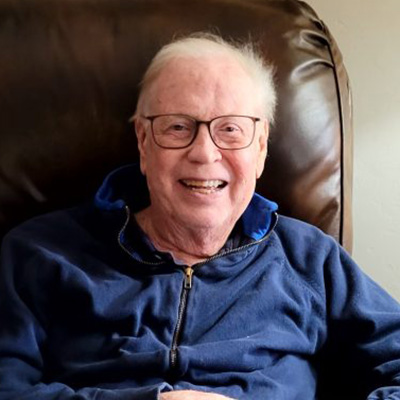In memoriam: George Alton Dunaway Jr.
George Alton Dunaway Jr., emeritus professor of pharmacology at Southern Illinois University School of Medicine, died May 16 in Edmond, Oklahoma. He was 82 years old and had been a member of the American Society for Biochemistry and Molecular Biology for more than 40 years.

Dunaway was born June 6, 1941, in Ironton, Missouri. After graduating from Cushing High School in 1959, he earned a B.S. in chemistry with minors in mathematics, physics and microbiology from the University of Central Oklahoma in 1965. He then completed a Ph.D. in biochemistry at the University of Oklahoma in 1970.
Dunaway's postdoctoral research included work at Indiana Purdue University and the State University of New York at Buffalo. In 1975, he joined the faculty at SIU School of Medicine in Springfield, Illinois, where he spent his entire academic career until retiring in 2010. He was a committed biochemist whose study on phosphofructokinase, or PFK, isoenzymes contributed to our understanding of glycolysis. His research showed the diversity of PFK subunits found in several human organs, as well as the complicated composition of 6-phosphofructo-1-kinase isozymes in the rat brain. His 1985 paper in the Journal of Biological Chemistry described the brain's enzyme system as a combination of homotetramers and heterotetramers.
Over 31 years, he secured 32 research grants, supervised five graduate students and nine postdoctoral fellows, and authored 64 peer-reviewed articles. His research was presented at numerous national and international conferences, and he contributed three DNA sequences to the National Institutes of Health GenBank. Dunaway also served as associate editor of the textbook “Brody’s Human Pharmacology: Molecular to Clinical,” editing the section on drugs affecting the endocrine system.
According to a family obituary, Dunaway dedicated his academic career to medical and graduate education. He chaired the pharmacology education division for the American Society for Pharmacology and Experimental Therapeutics for two years. He was active in university and departmental committees and community organizations, including the Boy Scouts Eagle Review Committee, the Lincoln Heritage Soccer League Board and the American Heart Association, Illinois affiliate. He also coached youth baseball.
Together, Dunaway and his wife, Susan, created an English-style garden at their Springfield home. After his retirement, they moved to Sarasota, Florida, and then in 2014 to Edmond, Oklahoma, to be closer to their grandchildren and great-grandchildren.
He is survived by his wife, Mary Susan Dunaway; son. Brian Dunaway; granddaughters Mary Elizabeth "Liz" Dunaway and Sarah Jane Dunaway and husband Chris Parks; and great-grandchildren, Braxton, Cassius, Cayson and Kyler. He is also survived by his brothers, Larry Dunaway and wife Dorothy of Sarasota and Richard Dunaway and wife Jill; as well as his nephew, Abran Dunaway, and niece, Stephanie Dunaway Carrington.
Enjoy reading ASBMB Today?
Become a member to receive the print edition four times a year and the digital edition monthly.
Learn moreGet the latest from ASBMB Today
Enter your email address, and we’ll send you a weekly email with recent articles, interviews and more.
Latest in People
People highlights or most popular articles

Simcox wins SACNAS mentorship award
She was recognized for her sustained excellence in mentorship and was honored at SACNAS’ 2025 National Conference.

From humble beginnings to unlocking lysosomal secrets
Monther Abu–Remaileh will receive the ASBMB’s 2026 Walter A. Shaw Young Investigator Award in Lipid Research at the ASBMB Annual Meeting, March 7-10 in Washington, D.C.

Chemistry meets biology to thwart parasites
Margaret Phillips will receive the Alice and C. C. Wang Award in Molecular Parasitology at the ASBMB Annual Meeting, March 7-10 in Washington, D.C.

ASBMB announces 2026 JBC/Tabor awardees
The seven awardees are first authors of outstanding papers published in 2025 in the Journal of Biological Chemistry.

Decoding how bacteria flip host’s molecular switches
Kim Orth will receive the Earl and Thressa Stadtman Distinguished Scientists Award at the ASBMB Annual Meeting, March 7–10, just outside of Washington, D.C.

Thiam elected to EMBO
He was recognized during the EMBO Members’ Meeting in Heidelberg, Germany, in October.

